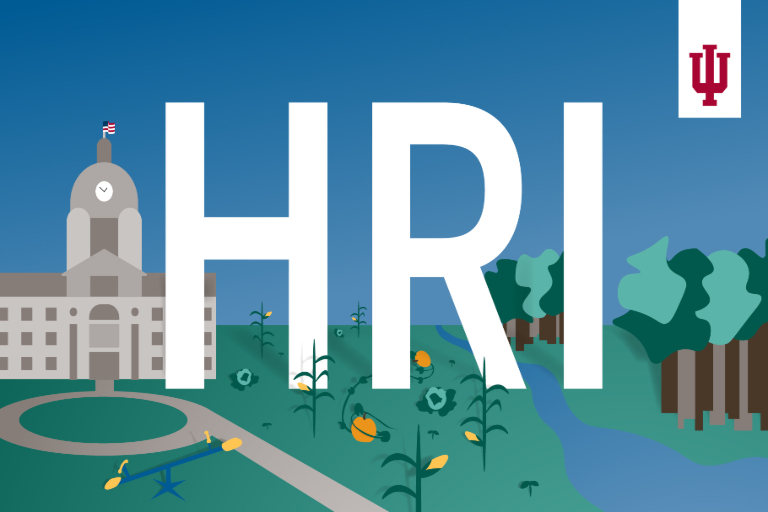In November 2019, the Environmental Resilience Institute (ERI) launched the Hoosier Resilience Index (HRI) to help residents and local governments in Indiana learn about their vulnerabilities to climate change and assess how prepared they are to meet them. This month, ERI released a report summarizing the results of community self-assessments and the state of climate resilience among participants.
In HRI’s first year, 27 Hoosier communities undertook the readiness assessment, a detailed questionnaire designed to give cities, towns, and counties a snapshot of their preparedness for climate risks across eight aspects of local governance. As of January 2021, 14 local governments had completed the self-assessment, while 13 were still in progress.
Local governments that completed the assessment rated themselves as being more prepared for some climate change impacts than others. For example, communities generally scored themselves higher in areas related to extreme precipitation and floodplain management than extreme heat.
Other general findings from the report indicate that local governments assess themselves as being better prepared to protect buildings and infrastructure from climate risks than habitats and people. Common vulnerabilities shared by participating communities include risks related to economic development, public health and safety, and land use.
“Climate change is projected to bring more heavy rains and heatwaves to Indiana, presenting communities with the challenge of needing to do more to prepare,” said ERI Implementation Manager Andrea Webster. “Without further action, many participating communities, especially their most vulnerable residents, could face grave economic and health consequences from climate change."
Examples of actions local governments can take to better prepare their jurisdictions include finding ways to provide assistance to residents that may face financial strain from increasing summertime energy costs, creating zoning to protect native habitats, and planning for climate refugees and high air pollution days.
After completing the readiness assessment, local government staff met with ERI to discuss the results, provide feedback on the experience, and identify next steps. The Cities of Richmond, Fort Wayne, and Goshen used the assessments to identify areas for improvement to include in their climate action plans.
"I was surprised at how far-reaching the impact of this is across city departments and projects and in the broader community," said Richard Strick, Mayor of Huntington, Ind. "The readiness assessment helped us consider things that don’t immediately come to mind when thinking about preparedness."
In 2021, ERI is targeting more Indiana communities to assess their climate resilience and working to develop a platform for local governments to share best practices and lessons learned.



